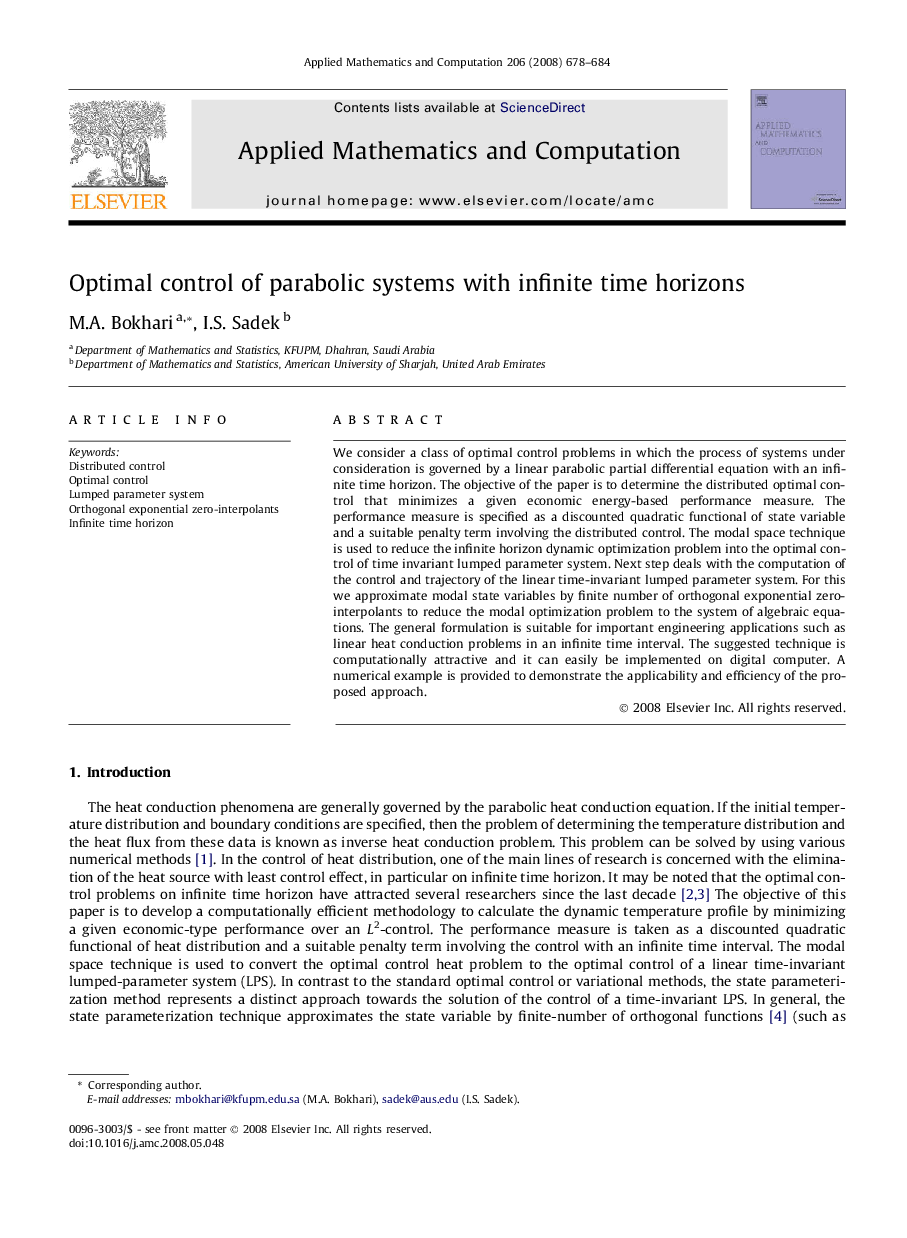| Article ID | Journal | Published Year | Pages | File Type |
|---|---|---|---|---|
| 4633180 | Applied Mathematics and Computation | 2008 | 7 Pages |
Abstract
We consider a class of optimal control problems in which the process of systems under consideration is governed by a linear parabolic partial differential equation with an infinite time horizon. The objective of the paper is to determine the distributed optimal control that minimizes a given economic energy-based performance measure. The performance measure is specified as a discounted quadratic functional of state variable and a suitable penalty term involving the distributed control. The modal space technique is used to reduce the infinite horizon dynamic optimization problem into the optimal control of time invariant lumped parameter system. Next step deals with the computation of the control and trajectory of the linear time-invariant lumped parameter system. For this we approximate modal state variables by finite number of orthogonal exponential zero-interpolants to reduce the modal optimization problem to the system of algebraic equations. The general formulation is suitable for important engineering applications such as linear heat conduction problems in an infinite time interval. The suggested technique is computationally attractive and it can easily be implemented on digital computer. A numerical example is provided to demonstrate the applicability and efficiency of the proposed approach.
Related Topics
Physical Sciences and Engineering
Mathematics
Applied Mathematics
Authors
M.A. Bokhari, I.S. Sadek,
